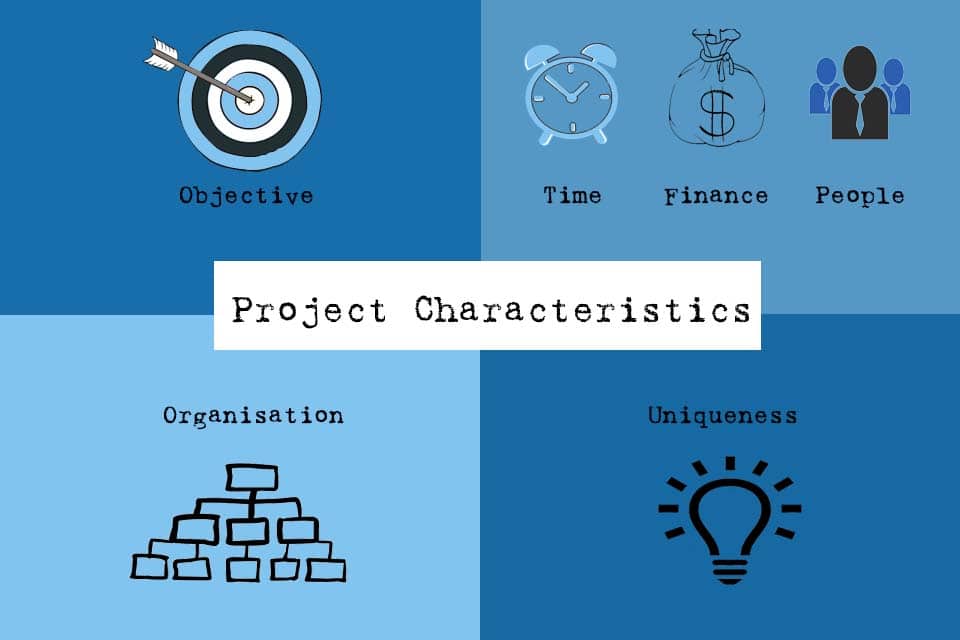A project can generally be defined by its characteristics where the following apply.
· It involves a single, definable purpose, product or result.
· It usually has defined constraints or targets in terms of cost, schedule (time), and performance requirements
· It uses skills and talents from multiple professions and organizations.
Projects often involve advanced technology and rely on task interdependencies that may introduce new and unique problems. Task and skill requirements vary from project to project
· It is unique. A project is generally a one-off activity that is never repeated exactly. Generally, one piece of impact damage will be unique.
· It is somewhat unfamiliar. It may encompass new technology and hence possess significant elements of uncertainty and risk. Failure of the project might jeopardize the organization or its goals.
· It is a temporary activity. It is undertaken to accomplish a goal within a given period of time; once the goal is achieved, the project ceases to exist.
· It is part of the process involved in working to achieve a goal. During the process, a project passes through several distinct phases; as a result, tasks, people, organizational structure; and resources change as the project moves from one phase to the next. Projects usually have clear start and finish points. In the case of the aircraft repair, there will be an inspection, an appraisal, a solution, implementation, finalization and testing.
· It is part of an interlinked process. Projects are very rarely carried out in isolation. There is usually some interlinking between different projects that are being run by any particular organization.
· It is generally of secondary importance to the organization. Projects are generally not the primary objective of the organization. There are exceptions such as pure research and development organizations and companies that are established purely to plan and execute a single project.
· It is relatively complex. Projects involve multidisciplinary teams and have defined aims and objectives. In organizational terms they therefore tend to be relatively complex as compared to the standard functional processes that operate within the organization.
From the project characteristics highlighted above, it is clear that projects require a unique form of management. Hence the concept of project management evolved in order to plan, coordinate and control the many complex and often diverse activities involved in projects.
Project management is, in essence, the general management of an organization. Good project management therefore requires the effective application of a wide range of general management skills in order to achieve the desired goals. Skills that senior corporate executives use daily in directing whole organizations are equally relevant to project management, and include:
· financial awareness;
· marketing appreciation;
· technical knowledge;
· planning skills;
· strategic awareness;
· quality management.
Project management covers the whole range of functional management areas. Skills are often required in all of these areas to secure project success. Almost universally, the traditional organisation has been structured as a pyramidal hierarchy with vertical manager–subordinate relationships and departments along functional, geographic or product lines. Authority and formal communication flow down from the top. Departments tend to be highly specialized and operate independently. Traditional organisations become very efficient in what they do and are well suited to a stable environment. They are fairly rigid and therefore less suitable to the unstable and dynamic environments that characterize project situations.


